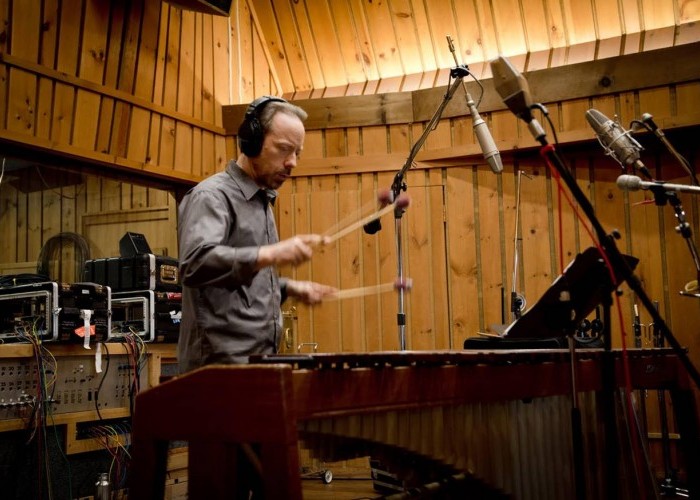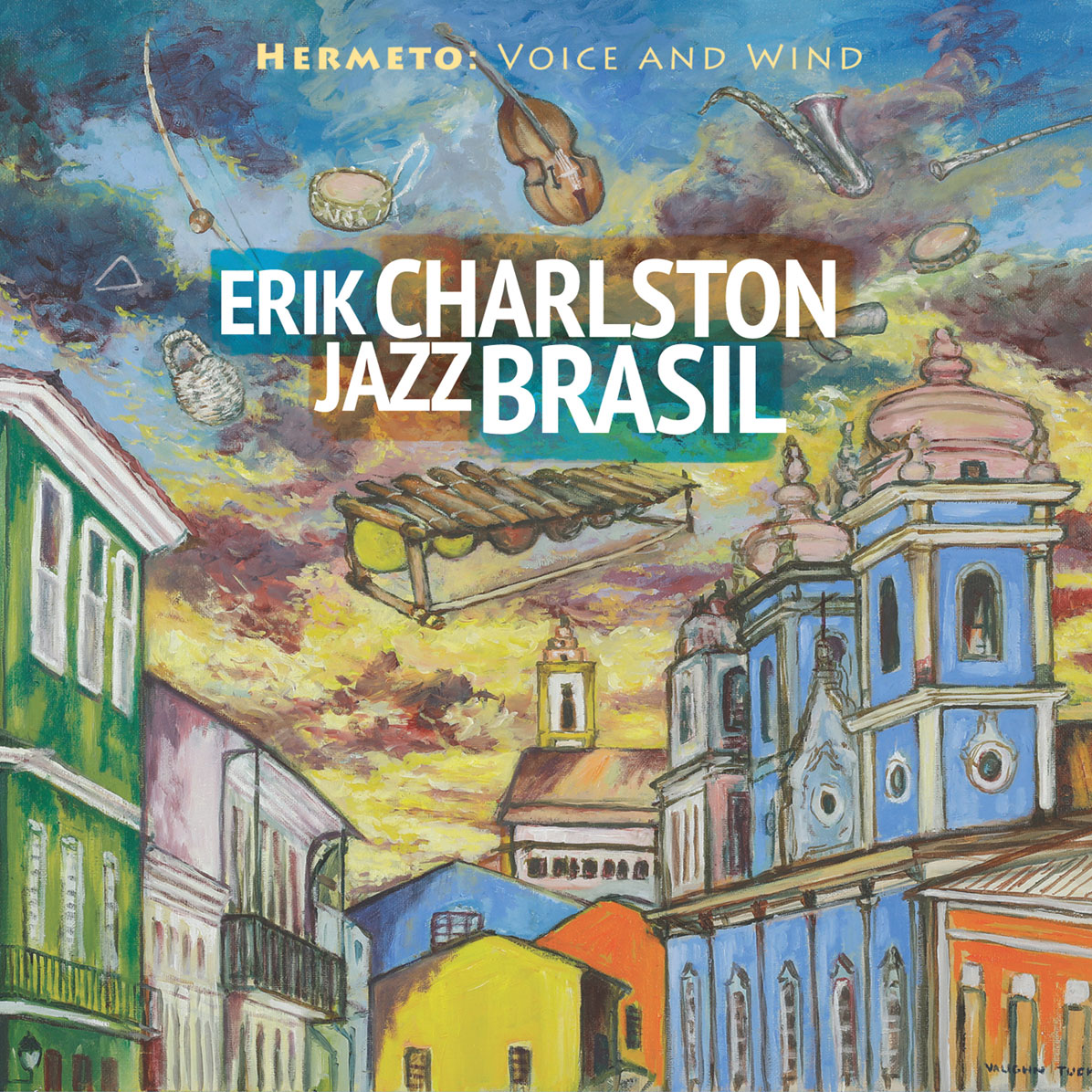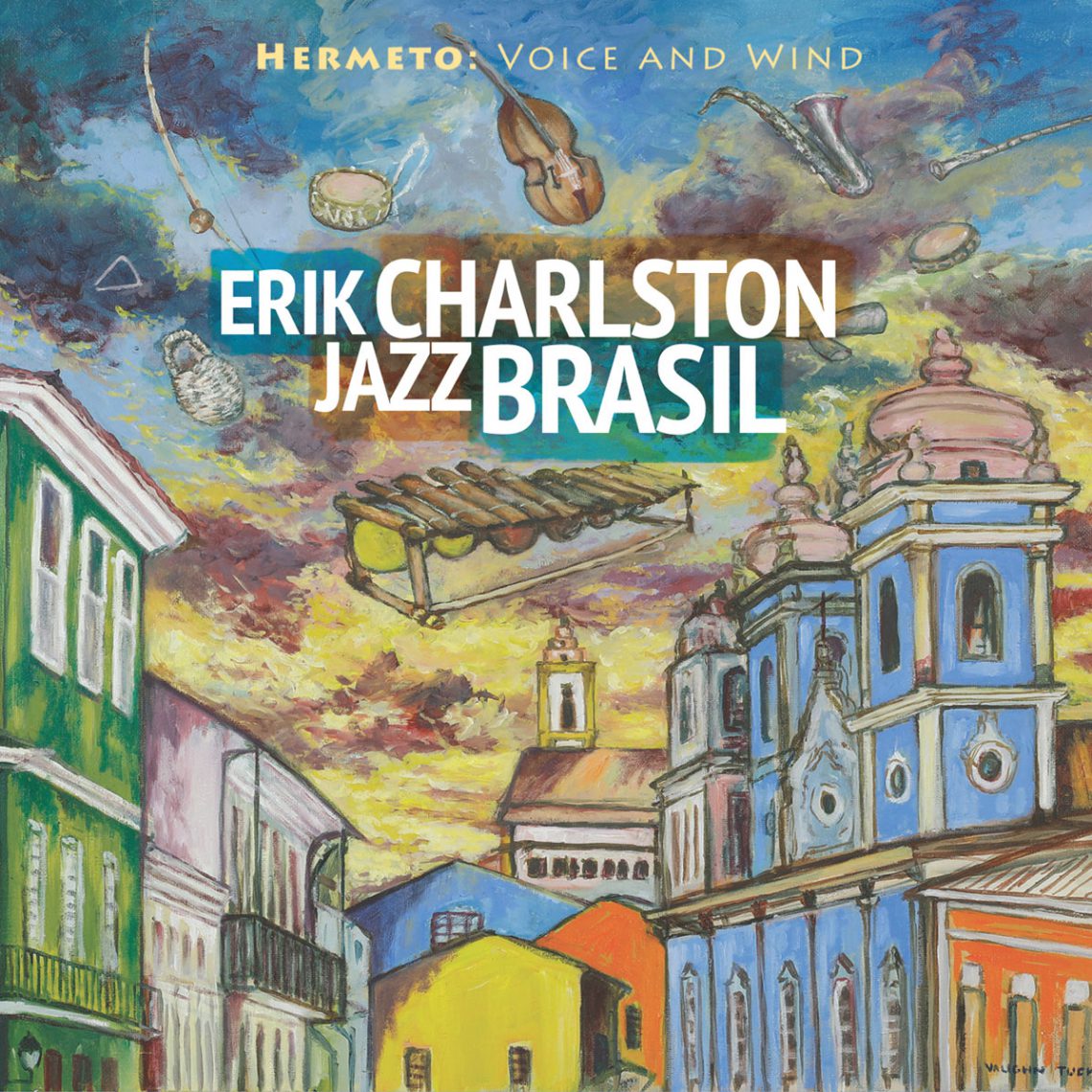
When DownBeat recently caught up with the multitasking master Erik Charlston at Manhattan’s Symphony Space, he was amid a typically chameleonic week: playing vibes on jazz gigs, rehearsing for a production of Turandot at the Metropolitan Opera, subbing as percussionist in the pit for The Lion King on Broadway and, not least, promoting his 10-year-old band JazzBrasil, which has released its second album, Hermeto: Voice And Wind (Sunnyside). About half the album’s tracks were written by Brazilian multi-instrumentalist Hermeto Pascoal.
Despite all his musical genre-hopping, it’s Charlston’s ability to dance a mean mambo that might lead to his most visible role yet: a part in Steven Spielberg’s upcoming remake of West Side Story. With his hair slicked back and wearing a pink 1950s-style tuxedo, Charlston plays the maracas-wielding bandleader in the musical’s “The Dance at the Gym” scene.
He landed the part because of a chance encounter with Spielberg during recording sessions for the film’s score, for which he was hired to play percussion (including the indelible vibraphone part in the song “Cool”). When the scene was filmed, Charlston said, “I had these maracas, and I happened to know how to do the mambo, so I started dancing with them. And Spielberg says, ‘Keep doing that,’ and moves the camera in closer.” That shot may or may not make it to the final cut, but it was an once-in-a-lifetime experience for Charlston.
A native of Chicago, Charlston moved to New York in the 1980s to earn a master’s degree at The Juilliard School (studying percussion and voice). His vibraphone and vocal skills, and his interest in Brazilian music, are well deployed on the new album. (He also sings on two tracks.) The all-star band includes Ted Nash on saxophone, clarinet and flute, pianist Mark Soskin, bassist Jay Anderson, drummer/percussionist Rogério Boccato and percussionist Keita Ogawa.
“[Charlston is] classically trained, but he’s also a helluva improviser,” Soskin said. “He gathered some amazing tunes for us from Pascoal’s vast repertoire.” Also featured are songs composed by two other Brazilian stars: multi-instrumentalist Egberto Gismonti and singer/songwriter Lenine.
“When I first came to New York,” Charlston recalled, “I started hearing a lot of Brazilian music, but Hermeto’s music was different from everything else.” Pascoal, still touring at 83, writes highly personal music inspired by his upbringing on a farm in a remote section of Brazil’s northeast, tapping into the natural sounds and rhythms he heard growing up.
“Birds, cows, pigs, burbling streams—it was all music to him,” Charlston said. “He once had [percussionist] Airto [Moreira] squeeze a pig in the studio, because that’s the sound he wanted. Hermeto will play a choro, and it might start out sounding like a regular choro, but midway through the tune it takes a left and just explodes. I thought, ‘This would sound great on mallet instruments.’”
Pascoal’s music is not just grooves and pretty melodies; it can be dissonant and frenetic, with what Charlston calls “a thick jazz vocabulary.” He added, “You know about his ‘Música Da Lagoa,’ where the musicians play in the lagoon? He put his whole heart into that piece; it wasn’t a stunt. Like he says, ‘Tudo é som.’” (The phrase can be translated as “Everything is sound.”)
“Ten years ago, I organized the group in order to play Hermeto’s music with my friends, like Ted, Mark and Jay, plus Brazilian drummers to provide the earthy rhythms. I’d be riding that wave [on vibes and marimba] because they’re such great players.” The first JazzBrasil album, Essentially Hermeto (Sunnyside), was released in 2011 to critical raves.
Charlston, who taught percussion at Manhattan School of Music for 20 years, feels that he now is putting into practice the lessons he tried to impart in the classroom: “I always told my students to follow their hearts. Some will want to sing lieder. Some will want to play bebop. My whole thing is, ‘Follow your heart.’ I did that and it made all things possible for me. I relate to Hermeto in the same way. He heard things as a kid that moved him and followed his heart. I’m so inspired by what he achieved. Like Joseph Campbell said, ‘Follow your bliss, and doors will open where there were walls.’”


